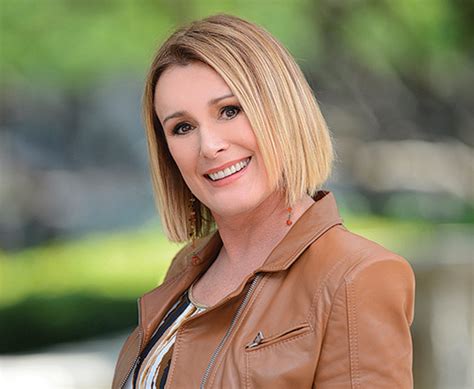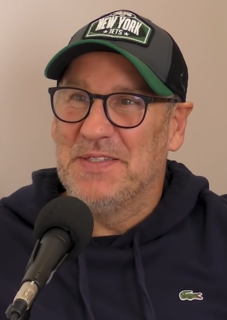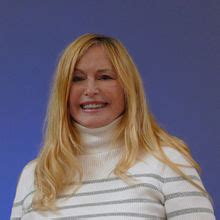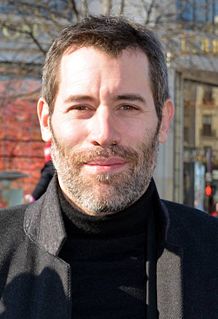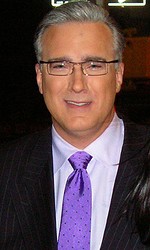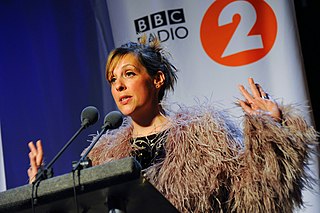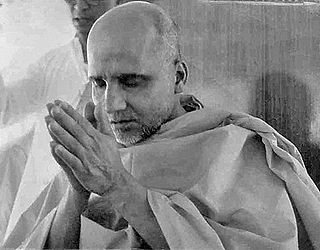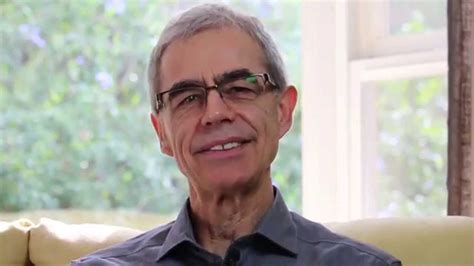Top 1200 Chronic Illness Quotes & Sayings - Page 2
Explore popular Chronic Illness quotes.
Last updated on April 16, 2025.
I think people forget that when people lose Medicaid coverage, they still show up at the hospital when they have a chronic illness or a traumatic impact on their health. And those bills are paid by the hospital who then passes those costs on. They do not have a magic fairy paying the bills for people who show up without insurance. Those bills are passed on to all the people in our country that do have insurance. That's why this bill is not going to break the cycle of higher premiums - because we're going to have fewer people insured.
My advice for someone who wants to be creative but has a chronic illness is to think of something that you can do as opposed to all the things you can't do - and do that. It's just like gardening: What can grow in this soil? There's some soil you can grow roses in and some soil you can only grow cactuses in, so if you can only grow cactuses, become the best cactus grower in the whole world. Taking care of yourself is the most important thing. Find something that makes you happy. Don't get down on yourself that you can't run a 4K or dance all night long at a fun club. Give yourself a break.
It is an unfortunate personal tragedy. However, when compared to the vast ocean of the collective tragedy faced by my people, my illness is merely a pebble. I am deeply sad that I am crippled by this illness, unable to contribute anything substantial towards the alleviation of the immense suffering and oppression of my people.
HIV/AIDS from converted from a lethal disease into a chronic disease because basic scientists' fundamental research was done that illuminated aspects of that virus and allowed the generation of therapies like antiretroviral therapies. And so now HIV/AIDS is not a lethal disease, it is a chronic disease.
We define boredom as the pain a person feels when he's doing nothing or something irrelevant, instead of something he wants to do but won't, can't, or doesn't dare. Boredom is acute when he knows the other thing and inhibits his action, e.g., out of politeness, embarrassment, fear of punishment or shame. Boredom is chronic if he has repressed the thought of it and no longer is aware of it. A large part of stupidity is just the chronic boredom, for a person can't learn, or be intelligent about, what he's not interested in, when his repressed thoughts are elsewhere.
In Scandinavia probably the most worker-supportive part of the planet, they have the highest rate of chronic pain and worker-related disability. So any kind of pain and difficulty is so much unwelcome that if you say that you're in pain, we're going to even pay you full salary to quit work because you're burned out, inside that what you're going to create is gigantic amounts of chronic pain syndrome. Scandinavians spend 15 percent of their gross national product on disability. 50 percent of the public health nurses are on disability. And that's where we're headed in the U.S. too.
For me, Yves Saint Laurent is a hero because he fought his whole life against illness. Maybe the only way to fight this illness for him was to make it positive with creation. Otherwise he would have been lonely or in the hospital. He had so many issues with alcohol, drugs, and everything, this explains a lot about his necessity to create.
Countries with the best-resourced medical services have the best outcomes for physical illness (it is better to have a heart attack in Washington or London than in rural Africa) whereas precisely the opposite is the case for mental illness (developing nations with limited psychiatric resources have better outcomes and lower suicide rates).
In fact, I don't advocate any particular diet for anyone. I think that's a very personal decision that people have to make. I will say this, however: There are more and more studies in terms of the health benefits of veganism; there are more and more studies that are showing that a properly executed vegan diet is highly beneficial for cleansing, for detoxing, in addition to lowering the risks for and even ameliorating chronic illness. We all have our own body constitutions and cultural food ways and personal tastes that determine what will work for us.
When I talk to the National Alliance on Mental Illness (NAMI) and other patient support groups, I take questions at the end. At one talk I was asked, "What's the difference between yourself and someone without mental illness?". At another talk I was asked, "How do you make the voices be not so mean?". I wish I knew.
Once and for all, people must understand that addiction is a disease. It’s critical if we’re going to effectively prevent and treat addiction. Accepting that addiction is an illness will transform our approach to public policy, research, insurance, and criminality; it will change how we feel about addicts, and how they feel about themselves. There’s another essential reason why we must understand that addiction is an illness and not just bad behavior: We punish bad behavior. We treat illness.
Often, when you're growing up, you don't know what's wrong. We don't talk openly enough about mental illness. How do you know - especially today with the incredibly high stress teens are put under during high school - if you have depression or if you have a mental illness or if you have anxiety? You don't know, because you've never seen it.
The ibtilaa' (testing) of the believer is like medicine for him. It cures him from illness. Had the illness remained it would destroy him or diminish his reward and level (in the hereafter). The tests and the trials extract these illnesses from him and prepare him for the perfect reward and the highest of degrees (in the life to come).
Let us be today's Christians. Let us not take fright at the boldness of today's church. With Christ's light let us illuminate even the most hideous caverns of the human person: torture, jail, plunder, want, chronic illness. The oppressed must be saved, not with a revolutionary salvation, in mere human fashion, but with the holy revolution of the Son of Man, who dies on the cross to cleanse God's image, which is soiled in today's humanity, a humanity so enslaved, so selfish, so sinful.
There are a very small number of doctors in France that use essential oils and herbs as well as conventional drugs in their treatments and sometimes they will use essential oils intensively, usually because they are treating people with cancer or chronic infections that patients have had for years, and ingested essential oils are a really a great choice for treating chronic infections if you're a doctor.
True love, it's like an illness. I never understood it before. In books and plays. Poems. I never understood what drove otherwise intelligent, right-thinking people to do such extravagant, irrational things. Now I do. It's an illness. You can catch it when you least expect. There's no known cure. And sometimes, in its most extreme, it's fatal.
I have chronic - well, I like to call it late-stage Lyme disease and not chronic, because I like to think someday I'll be all the way cured. It took me a really long time to get diagnosed, and I was misdiagnosed for a long, long time. I was very ill during the end of Le Tigre, which was kind of why that ended, amongst other things.
Manic-depression distorts moods and thoughts, incites dreadful behaviors, destroys the basis of rational thought, and too often erodes the desire and will to live. It is an illness that is biological in its origins, yet one that feels psychological in the experience of it, an illness that is unique in conferring advantage and pleasure, yet one that brings in its wake almost unendurable suffering and, not infrequently, suicide.
I think mental illness or madness can be an escape also. People don't develop a mental illness because they are in the happiest of situations, usually. One doctor observed that it was rare when people were rich to become schizophrenic. If they were poor or didn't have too much money, then it was more likely.
There's no such thing as mental illness. We're all mentally ill and we're all haunted by something, and some people manage to find a way to ride it out so that they don't wind up needing extra help. So I think that "mental illness," as a term, is garbage. Everybody is in various states of needing to transcend something.
Insecurity refers to a profoud sense of self-doubt-a deep feeling of uncertainty about our basic worth and our place in the world. Insecurity is associated with chronic self-consciousness, along with a chronic lack of confidence in ourselves and anxiety about our relationships. The insecure man or woman lives in constant fear of rejection and a deep uncertainty about whether his or her own feelings and desires are legitimate.






